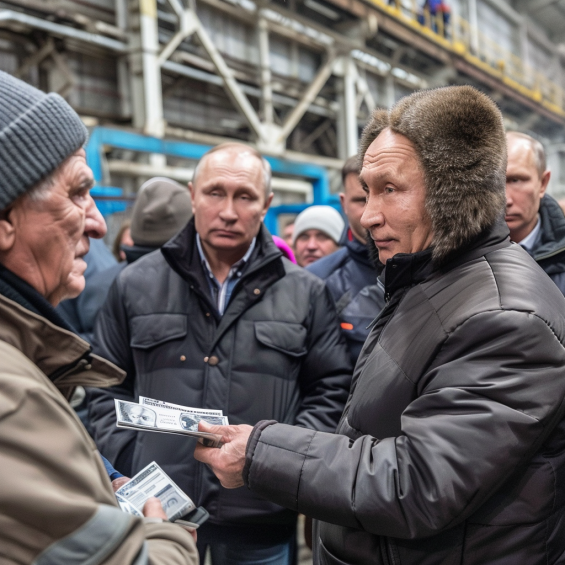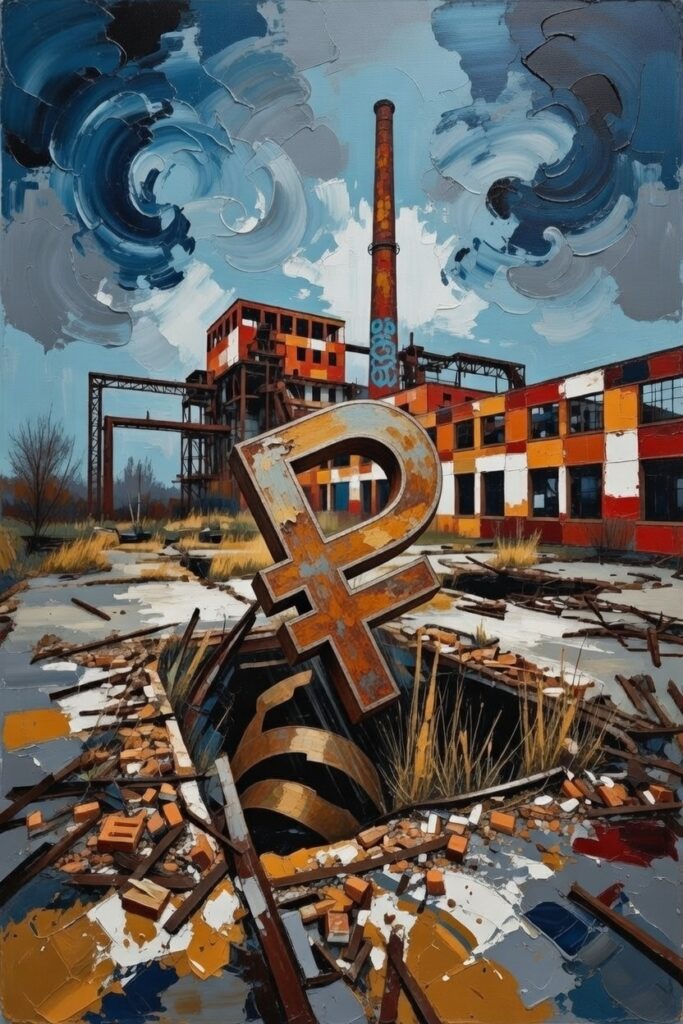Following the death of Alexei Navalny’s, his wife Yulia declared that she was ready to continue his cause and fight against the Kremlin. Most of Navalny’as supporters greeted her statement with enthusiasm: after the death of the FBK founder, this segment of the public felt utterly devastated. In this sense, Yulia Navalnaya has done something important for a large (and perhaps the most active) section of opposition-minded Russians. She is willing to represent these people, to speak for them, and she has every right to do so. Yulia was always by her husband’s side, she always accompanied him on every trip, including his last trip to Russia. She and her position are well known to Alexei’s supporters. Yulia Navalnaya will be able to continue contacts with Western institutions and will have a legitimate mandate to do so.
However, very soon the opposition circles were engulfed by speculations and resumed discussions of who should be the «leader» of the entire opposition. Yulia Navalnaya is certainly one of the contenders for this position. However, the discussion about who should be such a «leader» now seems counterproductive, as does the desire of the part of the public to have such a single, unquestioned «leader». This speculation and discussion would have made sense if the Russian opposition were running in a real election and needed to form a coalition in order to win, or at least achieve a significant result. In that case, it would inevitably have had to choose a leader: a successful campaign would require the most popular, or at least the most promising, politician. As long as this is not the case, any talk of a «single leader» will only lead to conflict, which the Kremlin encourages and promotes to its own advantage. Local opposition groups now have their own authoritative figures at the helm. Some parts of the public gravitate towards the agenda of FBK, some to that of Mikhail Khodorkovsky, some gather around Maxim Katz, and some support libertarian politician Mikhail Svetov. Many citizens critical of the authorities consider Yekaterina Shulman, who has not yet expressed a desire to become a political player, to be the authority and de facto leader.
In the absence of conflicts between the leaders of different opposition groups, the segment of society critical of the authorities, while seemingly fragmented, appears to be more or less united. Defining a «leader» when the political situation does not require it divides this audience and turns its various groups into political opponents, fighting each other, spending energy on it, becoming disillusioned and demoralised. This does the anti-Putin movement no good at the moment.
Putin is suddenly being generous
For a long time, Vladimir Putin has been virtually ignoring the traditional campaign scenario for any candidate for the Russian government that includes the distribution of gifts at the expense of the public funds. At events where the president could act as a magician, pulling gifts out of his hat (for example, at a forum of municipal heads), he would start talking about the war, geopolitics and history instead. Putin could also listen to the gratitude of the public, specially trained for the occasion, but he was in no hurry to hand out presents. And now the moment has arrived.
This week the president and his subordinates, represented by Education Minister Sergei Falkov, promised to overhaul all Russian schools by 2030. At the «Strong Ideas for New Times» forum, Putin promised support to small and medium-sized businesses, assuring entrepreneurs that the Russian economy is doing well and will get better still. As yet another gift, the Russian leader gave Tatarstan an opportunity to host the «Games of the Future» festival, a rather large event with the participation of the leaders of the states still friendly towards Russia.
Not so long ago, last week, Putin also started handing out «targeted aid.» At the Forum of Future Technologies, the president announced new allowances/bonuses for doctors, which will be paid on 1 March. In settlements with a population of less than 50,000 people, doctors will receive a bonus of 50,000 roubles, and other medical staff — a one-time payment of 30,000 roubles. In larger cities (with a population of up to one hundred thousand), doctors will receive an additional 29,000 rubles, and nurses and paramedics 13,000. From 1 April, the salaries of all medical staff will be increased by 50%. On closer inspection, the gifts (more like bribes) are not so generous. They are aimed at a sufficiently narrow circle of doctors and are intended to attract specialists to small and medium-sized towns and villages. Doctors, paramedics and nurses from large cities, where hospitals, perinatal centres and specialist clinics are concentrated after various consolidations and cutbacks, will not benefit from Putin’s generosity. The increase in the fixed part of their remuneration will not do them much good either.
In essence, this is a kind of therapy for all Russians: the state is supposedly doing well in terms of its budget, salaries in the medical sector are rising, and therefore the quality of medical care is improving. The effect must be achieved before the elections, because after the elections it will quickly become clear that Putin’s gifts will not solve the main problem. Russia suffers from a severe shortage of highly specialised doctors, who are concentrated in the big cities, and people often have to queue for weeks or even months to get an appointment. Attracting GPs and general practitioners to small towns will not solve the problem. However, the move may well work during the election campaign: some sections of the public will think that the Kremlin is seriously concerned about the problems of healthcare, so much so that it is prepared to pay doctors large bonuses (without considering who will actually receive these bonuses).
Putin vaguely promised the workers of Uralvagonzavod some kind of extension of welfare payments designed for young families (the president promised to clarify the details later), and the residents of the Tver and Novgorod regions were promised the construction of a high-speed railway line. This construction project is allegedly intended to turn these regions into a single conurbation with Moscow and St Petersburg. According to Putin, the journey from Moscow to Tver will take 39 minutes, and the inhabitants of the towns on the main line will be able to commute to work in the capital. These assumptions and arguments show how out of touch with reality Putin really is. The cost of a one-way ticket from Moscow to Tver on the Lastochka electric train is 700 roubles (7 euros), on the Sapsan high-speed train — 2 thousand (20 euros). It is clear that after the construction of the motorway prices will not fall, i.e. the price of a journey will be more expensive than the cost of renting an apartment in Moscow, and the regular commute from city to city will simply be pointless. Yet Putin continues to promote quirky, ridiculous ideas, while the propaganda is ready to present these isolated, one-off solutions as the way to solve long-standing and deep-rooted problems. These stories may also work on part of the audience and boost their loyalty before the elections. Most likely, after the elections, Putin will ignore his promises, exactly as he did with the decrees of May 2012. These decrees were supposed to increase the incomes of state employees substantially, but this never happened: there was simply no money in the treasury to pay for such an increase. It is unlikely that such funds will suddenly appear in the budget of a country at war to support Putin’s empty promises.










